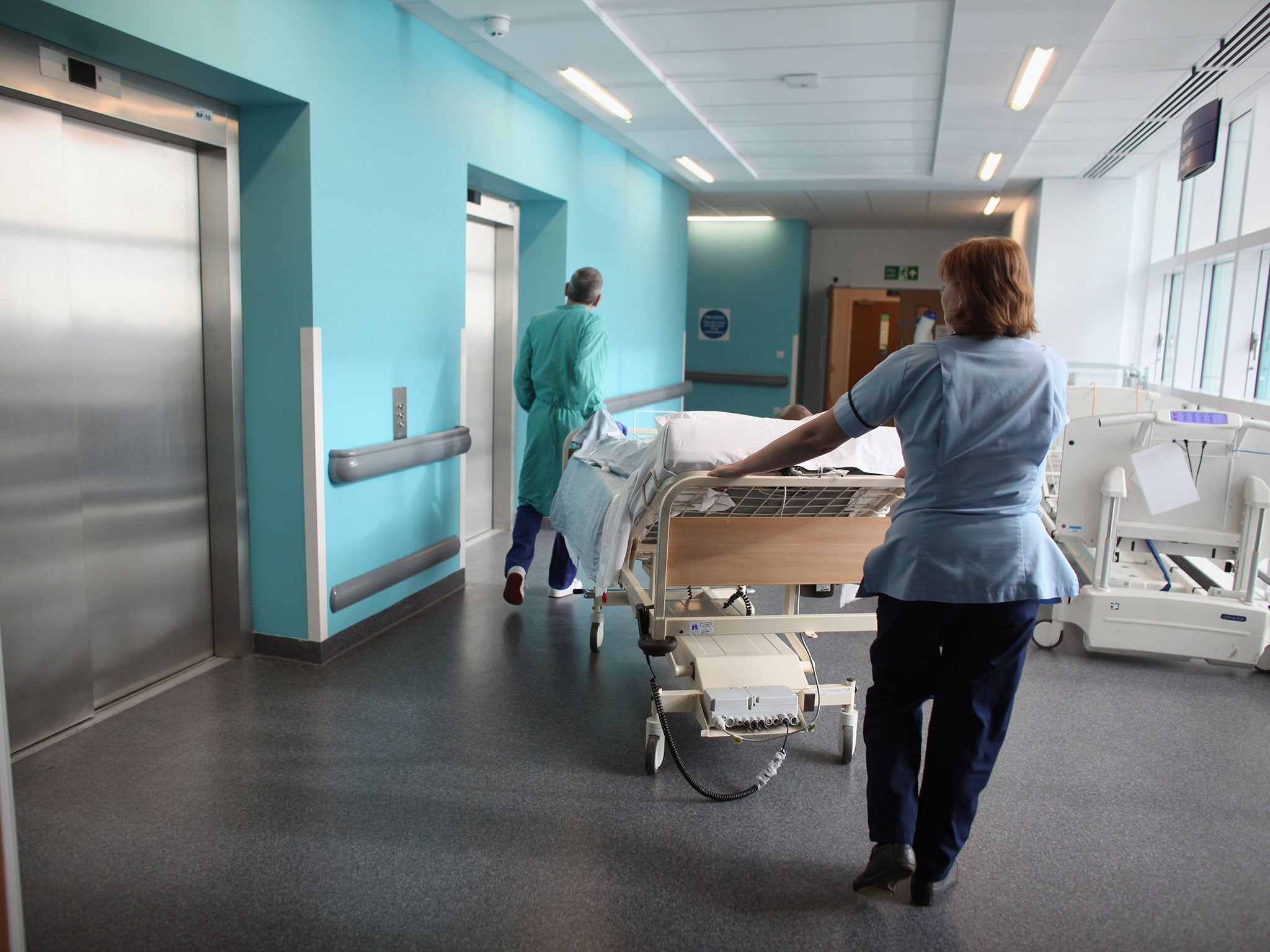British Red Cross CEO defends NHS 'humanitarian crisis' remarks
Mike Adamson says phrase was justified by scale of 'threat' posed to nation's health and wellbeing by pressures on system

Your support helps us to tell the story
From reproductive rights to climate change to Big Tech, The Independent is on the ground when the story is developing. Whether it's investigating the financials of Elon Musk's pro-Trump PAC or producing our latest documentary, 'The A Word', which shines a light on the American women fighting for reproductive rights, we know how important it is to parse out the facts from the messaging.
At such a critical moment in US history, we need reporters on the ground. Your donation allows us to keep sending journalists to speak to both sides of the story.
The Independent is trusted by Americans across the entire political spectrum. And unlike many other quality news outlets, we choose not to lock Americans out of our reporting and analysis with paywalls. We believe quality journalism should be available to everyone, paid for by those who can afford it.
Your support makes all the difference.The head of the British Red Cross has stood by his description of a “humanitarian crisis” gripping the NHS after the Prime Minister rejected the suggestion.
Mike Adamson, the charity's chief executive, said the phrase was justified by the scale of the “threat” posed to the nation's health and wellbeing by pressures on the system.
There has been a “significant change” in demand for the Red Cross's help in recent months and the charity is now working in 20 A&Es, he said in an article for The Times.
His renewed warning comes as the head of an influential think tank said the NHS was “buckling under the strain of trying to meet rising demand and still maintain standards”.
Mr Adamson said underfunding of social care and a “plethora” of systemic failures were contributing to a crisis that the charity has a duty to expose.
He said: “We see people discharged from hospital to chaotic situations at home, falling and not being found for hours, not being washed because there is no carer to help them.
”These are people in crisis and in recent weeks we have started talking about this as a humanitarian crisis. We don't say this lightly and we have a duty to say it.
“We are part of a worldwide humanitarian network and our fundamental principle of humanity states we must help to 'prevent and alleviate human suffering wherever it may be found'.
”This humanitarian crisis needs urgent action.
“In considering making this statement, I went back and looked closely at the definition of a humanitarian crisis: It refers to the scale and depth of need facing a population.
”In this case we are seeing large numbers of vulnerable people facing a threat to their health, safety or wellbeing.“
Mr Adamson referred to recent deaths at Worcestershire Royal Hospital as extreme examples, but warned patients were suffering ”prolonged physical and mental distress“ on a broad scale.
The Red Cross came under fire for describing the situation facing the NHS as a ”humanitarian crisis“ as it was revealed on Friday that A&E departments shut their doors to patients more than 140 times in December.
Meanwhile figures showed a third of health trusts in England had issued alerts that they needed urgent action to cope.
Critics said the crisis affecting the NHS was not akin to that faced by refugees of conflict in Syria and Yemen, or famine and drought in the Lake Chad region of central Africa.
On Sunday Theresa May said she did not accept the Red Cross's description, but admitted there are ”huge pressures“ facing the NHS.
Mr Adamson said: ”Of course each of those crises is different. But to the British Red Cross, every crisis is personal.
“From famine to floods to loneliness, it's not just the scale of the crisis that matters. It's that the person affected feels they are in crisis.
”That person suffering on the trolley in a corridor feels at crisis point. The people our volunteers help feel scared and desperate. They feel they are in crisis.
“We are talking about this now because there has been a significant change in the system over recent months.”
Mr Adamson said more funding was needed to boost social care to alleviate some of the pressures facing hospitals, including ensuring the elderly can be safely returned home after treatment.
However, he said there are also “too many boundaries” that hit the ability of doctors and nurses to work efficiently and a “plethora of tiny things”, such as access to wheelchairs, that need addressing.
“The British Red Cross has long had a role in supporting the NHS, helping people get home from hospital, providing ambulances, wheelchairs and first-aid training,” Mr Adamson said.
“We will continue to do this as long as they need us. But there must be proper funding that recognises how we as a nation are living for longer with multiple needs.
”We need a new joint approach to solving the problems. Without that, this humanitarian crisis will persist.“
Chris Ham, chief executive of think tank the King's Fund, said in a letter to The Times that a new settlement for health and social care was urgently needed.
He wrote: ”With social care, the number of older people receiving publicly funded care has fallen by more than 400,000 since 2009/10, while the health system is buckling under the strain of trying to meet rising demand and still maintain standards.“
PA
Join our commenting forum
Join thought-provoking conversations, follow other Independent readers and see their replies
Comments